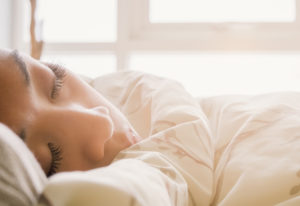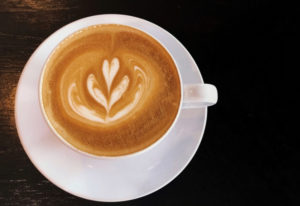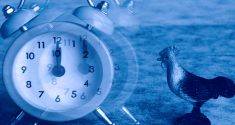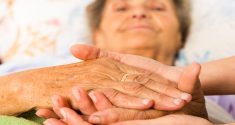When daylight saving time ends, you might stay up late the weekend of the time change, banking on the fact that you’re gaining an extra hour of sleep — but think again! You can still wake up feeling drowsy after daylight saving ends. Learn how daylight saving affects sleep and how to get the restful sleep your body needs all year long.
Myth: We Gain an Hour of Sleep When We Turn the Clocks Back
 On October 31st, you may be thinking that setting the clock back one hour will give you an extra hour of sleep. Technically, when daylight saving time ends, we do gain an hour in the day — but that doesn’t mean you’ll actually feel more rested on November 1st.
On October 31st, you may be thinking that setting the clock back one hour will give you an extra hour of sleep. Technically, when daylight saving time ends, we do gain an hour in the day — but that doesn’t mean you’ll actually feel more rested on November 1st.
The way daylight saving affects sleep hinges on the body’s internal clock. The human body operates on a 24 hour sleep-wake cycle called the circadian rhythm, which means that we get used to falling asleep and waking up around the same time every day. When the clocks change in the fall, it throws off this sleep-wake cycle.
This means that after daylight saving ends, you may have trouble falling asleep at night; or, you may wake early and have trouble going back to sleep, leading to grogginess throughout the day.
How can you prevent this negative impact on your sleep cycles, so you don’t feel sleepy for days or weeks after daylight saving ends in the fall? There are a few steps you can take to ensure a good night’s sleep, both on the night of October 31st and throughout the year.
Decrease Screen Time Before Bed
Did you know that “blue light,” which is emitted by your phone, computer and TV screen, can impact your circadian rhythm?
Your eyes (and brain) actually confuse the light that comes from screens with the light that comes from the sun (UV light). This means that even after the sun goes down, if you’re still looking at your phone, your brain thinks it’s still daytime. As a result, it halts the production of melatonin, the hormone that makes you sleepy. This is why it can be hard to sleep after watching TV for hours, even if it’s long past your bedtime.
The remedy: Turn off all screens at least an hour before bedtime. If you normally watch TV until you’re ready to nod off, switch to a screenless activity just before you go to bed. For example, try reading a book before bed. Your circadian rhythm will thank you!
Melatonin Can Influence How Daylight Saving Affects Sleep
Speaking of melatonin, this hormone plays a huge role in the circadian rhythm, as it tells your body when to get sleepy and when to wake up. Your body naturally produces more melatonin when it gets dark outside, which signals your brain to start getting ready to sleep. When your eyes sense UV light, such as the sun coming up in the morning, it stops producing melatonin, which tells your body it’s time to wake up. However, when the clocks fall back in the fall, the body can get confused and not know when to start and stop producing melatonin.
Luckily, melatonin supplements are widely available in many forms. Look for a pulsatile-release formula that releases melatonin in a rhythm that mimics the body’s natural melatonin production, for optimum effectiveness.
When you take a melatonin supplement regularly, you essentially reset your sleep-wake cycle. The best way to do this is to take the melatonin about 30 minutes before bedtime, giving it time to kick in by the time your head hits the pillow.
Skip the Alcohol
We’ve all heard of the “nightcap,” or the alcoholic drink you consume right before bed in order to help you sleep. It’s true — alcohol is likely to make you drowsy. However, you shouldn’t be tempted to down an alcoholic drink to help you sleep after daylight saving ends. Here’s why.
Alcohol actually adversely affects the quality of your sleep. Although you may feel drowsy and fall asleep more easily after that glass of wine, you’re not sleeping as restfully as you would if you were sober, whether you realize it or not.
When daylight saving time comes to an end, skip the alcoholic drinks; you’ll get a much better night’s sleep and start the week off feeling rested as a result.
Limit Caffeine Intake, Especially After Lunch

If you drink more than your usual amount of coffee during the day, your sleep-wake cycle will be thrown off and it’ll be harder to fall asleep at night. This is especially true if you drink that cup of coffee after lunch. Caffeine takes quite a while to exit your system completely, and even if you don’t feel jittery by the time you crawl into bed, the caffeine may still be working its way through your body, keeping you awake as a result.
So, you may have just as much coffee as you normally do; just don’t consume any more than that, and try not to drink any coffee after lunchtime.







